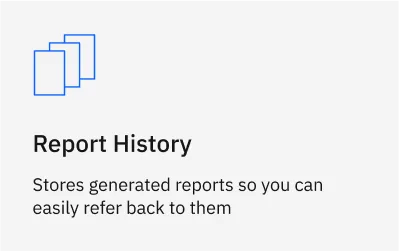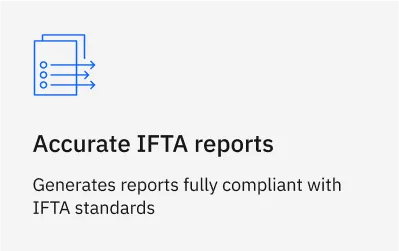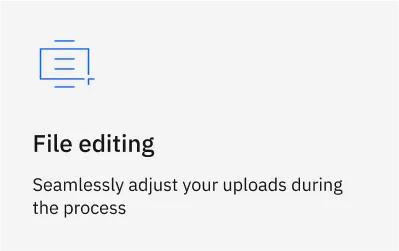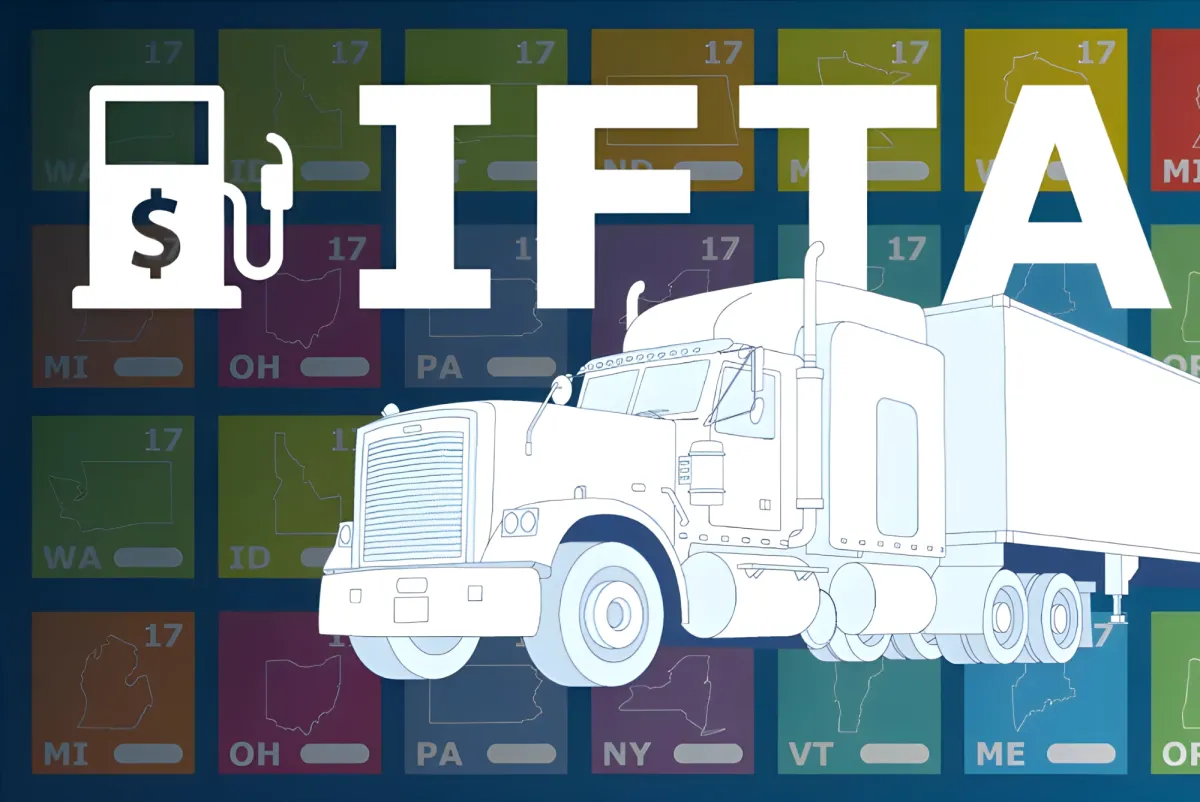
Automate complex calculations
The IFTA TAX Clculator eliminates manual calculation headaches by automating the intricate process of fuel tax reporting.

Improve operational efficiency
By integrating into existing workflows, the IFTA TAX Calculator enhances productivity and operational efficiency.

Reduce audit risk and human error
Export ready-to-file IFTA reports — without any errors and inconsistencies — with a several clicks.
IFTA TAX Calculator
in Action
With just a few clicks, you can transform information from GPS and FUEL reports into a comprehensive IFTA report, saving you a significant amount of time and efforts.
Performance Analytics
The IFTA TAXa Calculator is proud of its Performance Analytics, offering unmatched benefits to its clients compared to other services.
>1 minThe average time our clients spend on creating a single report.
95%The amount of time our clients have saved, expressed as a percentage.
100%Report Accuracy Rate compliant with IFTA requirements.
100%The percentage reflecting satisfaction levels among our clients.
Discover more about us
At IFTA Tax Calculator, our commitment is to streamline the fuel tax reporting procedure, ensuring efficiency and ease. Explore further details about our mission and how we achieve it by clicking the button below
What make us unique
Easily manage your taxes with our unique IFTA TAX Calculator, which seamlessly integrates user-friendly design and high-performance features.

Quick uploads
Simple and user-friendly interface for fast file management

Error analyzer
Helps pinpoint discrepancies in uploaded files

Accurate IFTA reports
Generates reports fully compliant with IFTA standards

No limits
It effortlessly handles reporting for an unlimited number of trucks

File editing
Seamlessly adjust your uploads during the process

Report History
Stores generated reports so you can easily refer back to them
What our Customer are Saying
Every review we receive significantly impacts our services, and we prioritize thorough analysis and addressing of the feedback provided by our customers.

IFTA TAX Calculator saved us hours of tedious calculations! Highly recommended

Emily Johnson

Effortless IFTA reporting with IFTA TAX Calculator. A game-changer for our fleet!

Olivia Smith

Finally, a tool that makes IFTA compliance simple. Thanks, IFTA TAX Calculator!

Ava Brown

IFTA TAX Calculator is a must-have for any Safety Manager. It's fast, accurate, and user-friendly.

Sophia Davis
100,000+ hours saved with IFTA TAX Calculator
IFTA TAX Calculator
Easy and free state mileage calculator
Elevate your fuel tax reporting process with IFTA Tax Calculator. Experience seamless calculations and bid farewell to manual errors. Unlock the power of simplified reporting with just a few clicks.
Our Blog
Our Blog
Frequently Asked Questions
Does the calculator include all taxes related to fuel?
Yes, we calculate all fuel taxes, including IFTA, Surcharge, and additional fuel taxes for five specific states: CT, KY, NM, NY, and OR.
Can I edit the uploaded data?
Yes, you can edit the uploaded data. This feature is available for registered users. You can modify and add states, mileage, and fuel gallons.
Can I calculate individual vehicle reports based on their fuel consumption?
Yes, you can. When generating a report, simply select the vehicle number and choose the Individual calculation type.
Is it possible to access previous reports I've generated?
Yes, you can access previous reports if you have the generated report link. You can store and use this link as needed. In future updates, we'll also introduce a History report feature.
When are IFTA quarterly tax returns due?
IFTA quarterly tax returns are typically due on the last day of the month following the end of the reporting quarter (e.g., April 30th for the first quarter).
Are there any exemptions or special provisions under IFTA?
Some jurisdictions offer exemptions or reduced tax rates for certain types of vehicles, such as agricultural vehicles or government-owned vehicles.
Why should I trust the accuracy of the IFTA Tax Calculator?
The IFTA Tax Calculator is developed by industry experts with over eight years of experience in the trucking business. It has been rigorously tested to ensure precise calculations and compliance with IFTA regulations, minimizing the risk of errors and audits.
How does the IFTA Tax Calculator handle data security?
We prioritize data security by employing advanced encryption methods and secure servers to protect your sensitive information.
How do I know the IFTA Tax Calculator will stay updated with regulatory changes?
Since we provide services related to IFTA ourselves, our team continuously monitors IFTA regulations and updates the IFTA Tax Calculator to ensure compliance with the latest requirements.












